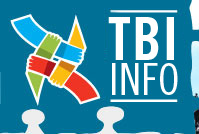You are here : Home > Library > Resilience > Resilience and family > 1996 > Houts, P.S., Nezu, A.M., Nezu, C.M., Bucher, J.A. (1996) The prepared (...)
Houts, P.S., Nezu, A.M., Nezu, C.M., Bucher, J.A. (1996) The prepared family caregiver: a problem-solving approach to family caregiver education, Patient Education and Counseling, 27, 63-73.
Early hospital discharges, greater reliance on outpatient care, and the growing prevalence of chronic diseases has increased the demands on family members who care for patients at home. Family caregivers need information and training to insure that patients’ needs are met and that home care is coordinated with that of health professionals. We propose a prescriptive problem-solving model for how care should be managed at home and for the kinds of information and training family caregivers should receive. The Prepared Family Caregiver model, which is summarized in the acronym COPE (Creativity, Optimism, Planning, and Expert information), teaches family caregivers how to develop and carry out orderly plans which address both medical and psychosocial problems and are coordinated with care plans of health professionals. The model is based on extensive research on problem-solving training and therapy. It empowers family members and patients for coping with illness and can help to moderate caregiver stress.
Terms of Use | 2007-2008 All rights reserved © INFO-TBI. Graphic design : François Ménard | Design : WebConforme

